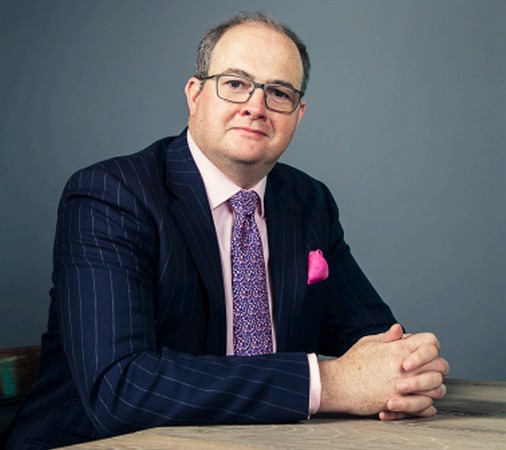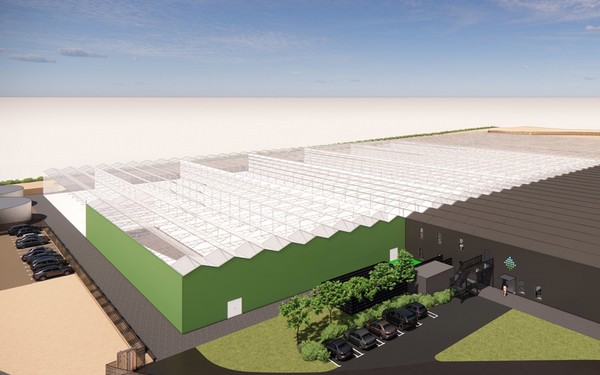“At the moment, almost all of the medical cannabis is imported to the UK. This leads to a lot of inconsistency in terms of supply and quality. Therefore, we believe the UK is in need of its own licensed producer. After receiving our license last year, we are now working on constructing a growing environment that ensures quality and consistency while being as environmentally friendly as possible,” says James Duckenfield, CEO of Glass Pharms. The company has the first UK commercial license granted by the Home Office to supply high-THC cannabis flowers to lawful pharmaceutical companies. Glass Pharms has secured up to £26.7 million of funding and will be partnering with KUBO for their carbon-negative greenhouse.
James Duckenfield
Carbon negative
KUBO has been selected to deliver a state-of-the-art greenhouse that ensures advanced control of climatic conditions and low energy consumption using its patented Ultra-Clima system. “We believe their system of preconditioning the air before it’s introduced to the plants will give us the best chance of achieving consistency,” explains James. “The consistent climatic control of about ten growing factors will give us the consistency that the pharmaceutical market demands. Moreover, the semi-closed greenhouse is very energy efficient. For example, we are recirculating the air rather than venting it, meaning that we can keep the warmth inside when it gets cold. The carbon-negative facility will be powered by renewable energy generated from food waste fed into an anaerobic digestion (AD) plant.”
AI
A range of climatic variables are controlled to precision using Artificial Intelligence and remote sensors. “This will ensure consistency and that we are turning on various power sources at the right times to minimize the energy consumption. For example, the AI will determine what the weather is likely to do in the future and makes sure that we are dosing the plants with the right amount of light. We don’t want to provide too much light and waste energy, and we also don’t want to provide too little light and not achieve the consistency we aim for,” James explains. 
Computer rendering of the Glass Pharms facility headhouse
“Almost a laboratory”
To achieve the high standards of pharmaceutical-grade cannabis, Glass Pharms will be fastidious about biosecurity and managing cleanliness in the facility. “Visiting our facility will be more like visiting a laboratory than a farm,” James says. Staff will be walking around suitably attired, and there is no tobacco allowed on site to avoid any transmission of viruses. “The climate will be carefully controlled to prevent the flourishing of fungal infections, such as botrytis and powdery mildew. As a result, we also won’t need to use pesticides and are expecting that we won’t need to irradiate the product afterwards. We will end up with a product that is fresh to the market, instead of a product that has been grown overseas and may be last season’s product which has done a tour of the world before it has arrived on our shores.”
Patient focus
James explains that instead of simply looking at the marketplace, Glass Pharms prioritizes listening to the voice of the patients. “We are spending time talking to patients and clinicians in order to find out what is important to them. We are looking at what the market is asking for from the perspective of patients and clinicians and deliver to their demand.”
Glass Pharms is currently well into the construction of their facility and expects to have products available in pharmacies this time next year.
For more information:
Glass Pharms
www.glasspharms.com
